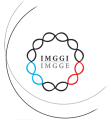Pharmacogenomic markers in immunosuppressant and immunomodulatory drug treatment: from validated biomarkers to genotyping kits and clinical algorithms
Principal Investigator: Branka Zukic, PhD
Pharmacogenomics is referred to as the study of variation in DNA sequence and gene expression as related to drug efficacy and toxicity. It is a base for implementation of personalized medicine, a young but rapidly advancing field of health care. The goal of pharmacogenomics is to identify genomic and clinical information in order to predict a response to treatment of a person. Pharmacogenomics completely changes the old fashion therapeutic paradigm of “one dose fits all patients” and “trial-and-error” prescribing, to a novel, personalized concept of “matching the right therapeutic and the right dose to the specific genetic signature of the patient”.The combination of thiopurine, methotrexate and corticosteroid therapy represents the standard “backbone” of treatment of different malignancies, autoimmune and inflammatory diseases. The use of these drugs in patients with genetic variants in the genes involved in the drug metabolism may lead to severe toxicity, adverse events or inadequate response to treatment. In this project we will investigate pharmacogenomic markers related to therapy response to immunosuppressant and immunomodulatory drugs: mercaptopurine, methotrexate and corticosteroids. These pharmacogenomic markers will be validated in Serbian and Slovenian populations affected with several diseases, such as acute lymphoblastic leukemia (ALL), rheumatoid arthritis (RA), psoriasis and kidney transplant patients.This project will be realized by the research team from Serbia (Laboratory for Molecular Biomedicine, Institute of molecular Genetics and Genetic Engineering, University of Belgrade) and Slovenia (Pharmacogenetics Laboratory, Faculty of Medicine, University of Ljubljana). Both collaborating group have already performed a large number of pharmacogenomic studies, looking for pharmacogenomic markers of treatment response in acute lymphoblastic leukemia in children and other cancers and in rheumatoid arthritis. The results published so far made a major impact in the field.Serbian and Slovenian research teams will contribute to the project with their own field of expertise. They will also exchange expertise since there is a complementarity between the groups. The complementarity also exists in the field of available methodologies and equipment. The expected result of this collaborative project is the identification of pharmacogenomic markers of response to immunosuppressant and immunomodulatory drugs, validation of clinical-pharmacogenomic models and the design of pharmacogenomic kits and algorithms for implementation of genotyping-based treatment choices in a wide spectrum of diseases that require such treatment. This will represent an important contribution to the quality of the life of the patients and by reducing the costs of inefficient treatment and treatment of drug adverse events also an important contribution to the health care systems of Serbia and Slovenia. Since this type of kits is not available yet, patients and health care systems all over the world will benefit from the project results. Our research may also lead to new patent applications. In addition, the originality and novelty of our research topics and translation in the clinical practice will enable PhD and postdoctoral students to pursue their research within our collaborative project.The translational aspect of our programme is to find new potentialdiagnostic and prognostic biomarkers, identify and investigate novel targets for treatment and pharmacogenomic markers of treatment response that will support individualized medicine.


